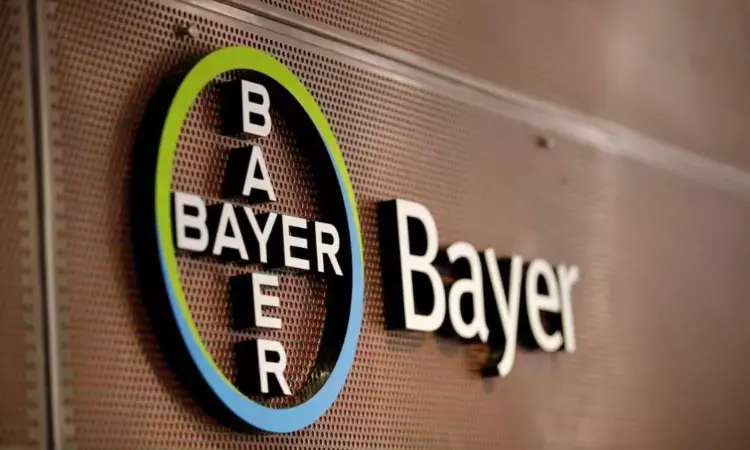- Home
- Medical news & Guidelines
- Anesthesiology
- Cardiology and CTVS
- Critical Care
- Dentistry
- Dermatology
- Diabetes and Endocrinology
- ENT
- Gastroenterology
- Medicine
- Nephrology
- Neurology
- Obstretics-Gynaecology
- Oncology
- Ophthalmology
- Orthopaedics
- Pediatrics-Neonatology
- Psychiatry
- Pulmonology
- Radiology
- Surgery
- Urology
- Laboratory Medicine
- Diet
- Nursing
- Paramedical
- Physiotherapy
- Health news
- Fact Check
- Bone Health Fact Check
- Brain Health Fact Check
- Cancer Related Fact Check
- Child Care Fact Check
- Dental and oral health fact check
- Diabetes and metabolic health fact check
- Diet and Nutrition Fact Check
- Eye and ENT Care Fact Check
- Fitness fact check
- Gut health fact check
- Heart health fact check
- Kidney health fact check
- Medical education fact check
- Men's health fact check
- Respiratory fact check
- Skin and hair care fact check
- Vaccine and Immunization fact check
- Women's health fact check
- AYUSH
- State News
- Andaman and Nicobar Islands
- Andhra Pradesh
- Arunachal Pradesh
- Assam
- Bihar
- Chandigarh
- Chattisgarh
- Dadra and Nagar Haveli
- Daman and Diu
- Delhi
- Goa
- Gujarat
- Haryana
- Himachal Pradesh
- Jammu & Kashmir
- Jharkhand
- Karnataka
- Kerala
- Ladakh
- Lakshadweep
- Madhya Pradesh
- Maharashtra
- Manipur
- Meghalaya
- Mizoram
- Nagaland
- Odisha
- Puducherry
- Punjab
- Rajasthan
- Sikkim
- Tamil Nadu
- Telangana
- Tripura
- Uttar Pradesh
- Uttrakhand
- West Bengal
- Medical Education
- Industry
Bayer Kerendia granted expanded indication in EU for broad range of patients with chronic kidney disease, type 2 diabetes

Kerendia is a non-steroidal, selective mineralocorticoid receptor (MR) antagonist that has been shown to block harmful effects of MR overactivation.
Berlin: Bayer has announced that the European Commission has granted approval for a label extension for Kerendia (finerenone) in the European Union (EU) to include results on cardiovascular (CV) outcomes from the Phase III FIGARO-DKD study. The study demonstrated that Kerendia reduced the risk of CV events in a broad population of patients with stages 1-4 CKD and T2D. The indication of Kerendia (10 mg or 20 mg), a non-steroidal, selective mineralocorticoid receptor antagonist, has been extended to include early stages* of CKD associated with T2D. Kerendia is now indicated for the treatment of chronic kidney disease (with albuminuria) associated with type 2 diabetes in adults.
Results from the pivotal Phase III FIGARO-DKD study were presented at the European Society of Cardiology (ESC) Congress 2021 and simultaneously published in the New England Journal of Medicine. FIGARO-DKD investigated the efficacy and safety of finerenone versus placebo in addition to standard of care on the reduction of CV morbidity and mortality in approximately 7,400 patients with CKD and T2D. The positive data from FIGARO-DKD demonstrated that finerenone significantly reduced the risk of cardiovascular events in adult patients with CKD and T2D versus placebo.
“Patients with chronic kidney disease are faced with an increased risk of cardiovascular events,” said Professor Peter Rossing, Head of Complications Research at the Steno Diabetes Center Copenhagen. “As chronic kidney disease progresses silently, with oftentimes no symptoms in the early stages, patients with type 2 diabetes should be regularly monitored by their doctor for the earliest signs of kidney disease, and once diagnosed should be treated comprehensively to reduce the risk of cardiovascular complications and death.”
Mineralocorticoid receptor (MR) overactivation contributes to CKD progression and CV damage which can be driven by metabolic, hemodynamic, or inflammatory and fibrotic factors. Addressing an alternative pathway, Kerendia offers protection as it selectively binds to the MR receptor, blocking harmful effects of MR overactivation.
“Even when blood glucose levels and blood pressure are well-controlled, the risk of kidney disease progression and cardiovascular events remains high in patients with chronic kidney disease and type 2 diabetes,” said Dr. Michael Devoy, Chief Medical Officer of Bayer’s Pharmaceuticals Division. “Kerendia addresses a key cause of disease progression that is not addressed by other therapies, and offers physicians a distinct path to protect patients from further kidney damage and cardiovascular events. With Kerendia having demonstrated kidney and cardiovascular benefits across a broad spectrum of disease severity in the pivotal Phase III studies, the approval of the label extension supports the use of this drug also in patients with earlier stages* of chronic kidney disease associated with type II diabetes.”
Based on the positive results of the FIDELIO-DKD Phase III study, Kerendia was granted initial marketing authorization by the European Commission in February 2022 for the treatment of CKD (stage 3 and 4 with albuminuria) associated with T2D in adults. Following this approval by the European Commission, the extended EU label for Kerendia now reflects data from more than 13,000 patients with CKD and T2D, based on both the Phase III FIDELIO-DKD and FIGARO-DKD studies.
Read also: Bayer submits Aflibercept 8 mg for regulatory approval in two major retinal eye diseases in EU
Ruchika Sharma joined Medical Dialogue as an Correspondent for the Business Section in 2019. She covers all the updates in the Pharmaceutical field, Policy, Insurance, Business Healthcare, Medical News, Health News, Pharma News, Healthcare and Investment. She has completed her B.Com from Delhi University and then pursued postgraduation in M.Com. She can be contacted at editorial@medicaldialogues.in Contact no. 011-43720751


